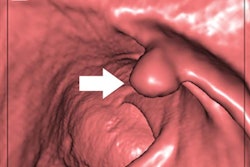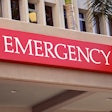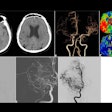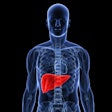
Participation has more than doubled in colorectal cancer screening exams -- including CT colonography -- among individuals in their 40s, according to an article published online on December 18 in Cancer. The growth has occurred since various cancer societies recommended lowering the age to begin screening from 50 to 45 in early 2018.
In a prior study, researchers from the American Cancer Society (ACS) reported that new colorectal cancer cases have grown increasingly more common among adults between the ages of 20 and 54 over the past four decades -- findings that motivated the society in May 2018 to recommend lowering the screening age for colorectal cancer to 45.
To evaluate the effect of this policy change, Stacey Fedewa, PhD, and colleagues from the ACS examined patterns in colorectal cancer screening among individuals between the ages of 45 and 59 who participated in the 2018 National Health Interview Survey. The final cohort included 5,800 individuals who were eligible for colorectal cancer screening with CT colonography, colonoscopy, sigmoidoscopy, or stool testing that year.
The researchers found that the number of individuals between 45 and 49 who underwent colorectal cancer screening more than doubled throughout 2018, from 226,656 in the first quarter of 2018 (before the recommended screening age was lowered) to 592,351 in the fourth quarter of the same year.
Overall, the proportion of eligible 45- to 49-year-olds who participated in screening increased by an average of seven percentage points during the final quarter of the year, several months after the recommended age to begin screening was lowered. This increase contrasted with the slight dip in participation rates among those ages 50 to 54 and the minor increase among those ages 55 to 59.
| Trends in colorectal cancer screening in 2018 | ||||||
| 50-55 years | 55-59 years | 45-49 years | ||||
| Q1 | Q4 | Q1 | Q4 | Q1 | Q4 | |
| Participation rates | 23.8% | 22.9% | 21.8% | 23% | 4.8% | 11.7% |
The exact reason behind this surge in colorectal cancer screening rates remains unclear, but the trend did coincide with the release of the 2018 ACS guidelines, and similar changes to screening guidelines have led to gains in prostate and breast cancer screening, Fedewa noted in a statement from the ACS. The accompanying scientific and lay media attention over the updated guidelines may have also raised provider and patient awareness of testing for colorectal cancer.
"However, it is unknown whether the recent accelerating colorectal cancer screening rates among people 45 to 49 years will be sustained," she said. "Commercial health insurers are only required to cover average-risk screening beginning at age 50, following recommendations from the U.S. Preventive Services Task Force."




















